What we offer
Apriorit’s development team provides tailored driver development services. We make sure your systems exchange exchange data securely, perform reliably, and remain stable under demanding conditions.

20+
years of experience
98%
client retention rate
200+
driver projects delivered
50+
driver development experts
With over 20 years of experience in the field, Apriorit’s skilled developers can provide you with:
- Kernel and driver solutions for macOS, Linux, and Windows
- Access to unique specialized development expertise
- Secure and performant solutions tailored to your hardware
- An efficient driver development process with definite deadlines and clear communication
Our kernel and driver development services
Types of low-level solutions we develop
Windows drivers
Whether your solution demands deep system-level interaction or efficient user-space functionality, we deliver optimized drivers that enhance system performance and reliability.
- Kernel-mode drivers (network filter drivers, network drivers, filter drivers, file system filter drivers)
- User-mode drivers (HID minidrivers, WIA minidrivers, UMDF filter drivers)
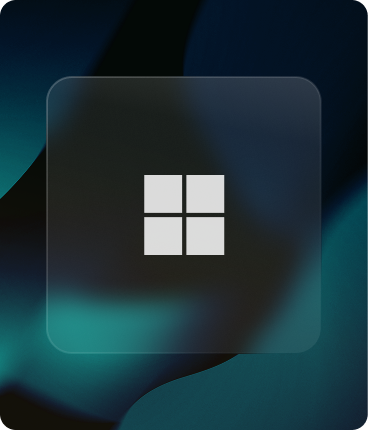
Linux modules
Unlock the full potential of your hardware with custom Linux drivers. You can count on us to create drivers that handle complex system tasks like memory management, hardware communication, and real-time performance.
- Module development
- Bootloader and kernel porting

macOS extensions
Our team will help you extend kernel functionality, enhance user-space applications, or integrate low-level system services. We create robust solutions that interact efficiently with the core system, providing needed functionality while ensuring security and compliance with Apple’s standards.
- Kernel extensions
- User space extensions
- System extensions
- Driver extensions
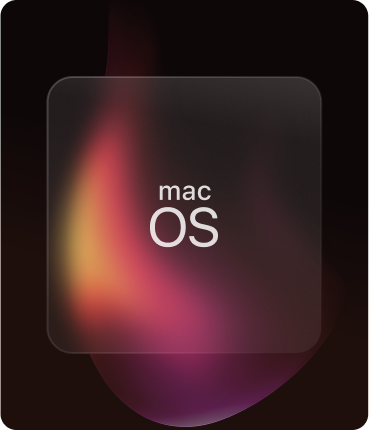
Device drivers
We specialize in developing high-performance device drivers for a wide range of custom hardware. Whether you require USB, audio, display, or Wi-Fi drivers, each solution is tailored to meet your device’s unique needs.
- USB drivers
- Printer drivers
- Audio drivers
- Virtual reality glasses drivers
- MIDI drivers
- Wi-Fi drivers
- WebUSB drivers
- Disk drivers
- Display drivers
- Scanner drivers
- COM-port drivers
- I/O device drivers
- Web camera drivers
- Smart card reader drivers
- HID device drivers
- TPM drivers
- FIDO2 drivers
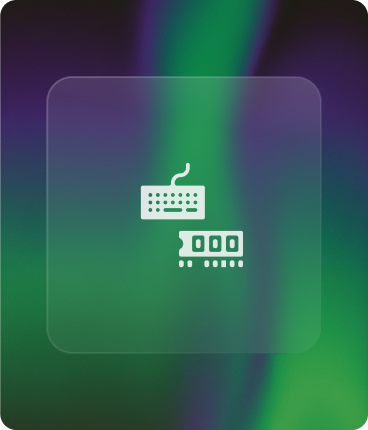
Don’t see the type of driver you need?
Reach out and discuss its development with Apriorit’s expert team. We can accommodate your project’s specific requirements.
Our tech stack
C++
C
Rust

Assembler
Swift
Microsoft Visual Studio
Xcode

WinDbg
DTrace
make
Windows Driver Verifier (WDV)
Kernel GNU debugger (KGDB)
Kernel debugger (KDB)
GNU debugger (GDB)
Low-level debugger (LLDB)
I/O Kit
DriverKit
File System Kit (FSKit)
Windows Driver Kit (WDK)
Windows Image Acquisition (WIA)
Data Plane Development Kit (DPDK)
Windows Driver Frameworks (WDF)
User-Mode Driver Framework (UMDF)
Kernel-Mode Driver Framework (KMDF)
systemd
Linux namespaces
Windows File System Minifilter
Windows Kernel Network Mini-Redirector
Virtualization
Netfilter
Security-Enhanced Linux (SELinux)
Network Driver Interface Specification (NDIS)
Kprobes
Linux Security Modules (LSM)
Virtual file system (VFS)
Binfmt
Windows Driver Model (WDM)
Windows Filtering Platform (WFP)
AppArmor
Extended Berkeley Packet Filter (eBPF)
Winsock Kernel (WSK)
Why choose Apriorit for kernel and driver development?
01
Security-focused development
We rely on the secure SDLC to ensure that your solution is well-protected at each stage. We implement best practices and niche security mechanisms according to your product’s needs.
02
High-quality code
Thanks to high-level qualifications, external certifications, and strict internal coding standards, Apriorit developers release a product only after ensuring flawless code quality.
03
Strong R&D expertise
With 20+ years of experience in kernel and driver development, we can help you find the best development strategy and select the right technologies for your particular project.
04
Refined business processes
Apriorit teams seamlessly adjust to your processes and routines. Our flexible cooperation models and project management skills allow us to deliver results without disrupting your work.
Partner with expert driver development teams
Leverage our real-life experience in device driver development services and get a stable, flexible, and secure product.
Our recent kernel and driverdevelopment projects
What our clients
say about us
Our development workflow
01
Project discovery
We turn your vision into a clear roadmap. By aligning with your goals, analyzing feasibility, and identifying key challenges and risks, we lay a solid foundation for a successful project with no surprises down the road.
02
Technical specification
We craft a detailed technical specification that connects your business objectives with the most suitable technical solutions, ensuring you get a system that’s not only functional but truly fit for purpose.
03
Project estimation
Based on the project’s requirements and approved specification, we define a realistic timeline and design a transparent budget that gives you clear visibility into every aspect of the process. After your approval, we proceed further with the project.
04
Development and QA
We bring your product to life with a development process focused on reliability, performance, and security, ensuring the final solution meets the highest quality standards and is ready for real-world use.
05
Delivery
After thorough testing, we showcase the completed solution for your approval. You receive everything needed for future scaling and maintenance: the codebase, technical documentation, and a production-ready build.
FAQ
Does Apriorit provide consultations on kernel and driver development for developers?
<p>Our focus is on providing kernel and driver development and quality assurance services, but we can consult with your team as a separate service.</p>
If you’re looking for free community support, specialized development forums and subreddits are still a good resource for peer advice on specific kernel and driver topics.
How do we get started on a driver development project with Apriorit?
<p>Collaboration typically starts with a short introduction and signing an NDA to ensure confidentiality. Our team then holds an intro call to clarify your expectations and requirements.</p>
<p class=mb-0>If you already have a detailed specification, our engineers will carefully analyze it, provide a development plan, and start the project.</p>
<p>If you don’t have a specification or have one but it’s incomplete, we will conduct a discovery phase to assess your project’s feasibility, define requirements, and prepare a full specification and development plan. This stage may require direct communication with our business analysts or engineers.</p>
For custom devices, we request a hardware sample. For bug fixes, we run diagnostics and provide detailed reports, whether you supply source code or only driver binaries.
When do I need a discovery phase for successful driver development?
<p>A discovery phase is important when there’s no complete or up-to-date driver specification. It helps define the project scope, clarify technical requirements, and identify potential issues before development begins.</p>
If you already have a driver that needs to be fixed or upgraded, a discovery phase helps to locate bugs, reveal compatibility gaps, and address performance problems in existing or off-the-shelf solutions. This ensures accurate estimates, a clear development plan, and smoother execution without unexpected delays.
How can I be sure that Apriorit is the right partner for my driver project?
<p>With over 20 years of experience in low-level development, Apriorit has built and tested drivers for a wide range of operating systems and devices — including custom hardware. Our secure development practices, strong cybersecurity expertise, and proven SSDLC ensure data protection and reliability.</p>
We combine technical depth with rigorous testing, helping clients release stable, compliant, and high-performance drivers efficiently.
What kind of post-development support and maintenance do you offer for driver projects?
<p>Upon delivery, our customers have an acceptance period to verify that the driver meets all requirements. After a customer accepts delivery, we provide a 90-day warranty period, during which we’ll fix any issues free of charge.</p>
For ongoing needs like hot fixes, debugging, or resolving user issues, Apriorit offers optional post-development support as a separate service, available on an hourly (<a href=/rd-services/time-and-materials-model>time and materials</a>) basis or via a <a href=/rd-services/dedicated-teams>dedicated team</a> for large-scale maintenance. This flexibility ensures your driver remains secure, stable, and fully functional long after deployment.
Have you worked with my type of device or protocol?
<p>Most likely, yes. Apriorit has over two decades of experience developing and testing drivers for diverse devices, protocols, and environments.</p>
<p>If you’re working with a custom device or protocol, or your technology isn’t listed in our tech stack, share the details with us. Our experts have extensive experience in kernel and driver development and can quickly get up to speed with your technology. </p>
During an introductory call, we’ll confirm our relevant experience, present similar case studies, and share client testimonials. Our expertise spans both standard and highly specialized custom hardware.
How much will my driver development project cost?
<p>The cost depends on project complexity, available documentation, and whether you’re developing a new driver or updating an existing driver. After reviewing your requirements and any code provided, our engineers will deliver a detailed project plan with a budget, suggested resource allocation, and timeline.</p>
Driver development and QA typically takes 1.5 to 2 months. We usually work on a fixed-price basis, but we can also offer time and materials or dedicated team models for projects that need more flexibility.
Tech insights
and expert tips
-
Writing Windows Drivers in Rust: How Rust Is Changing Kernel-Level Development [+ Development Guide]
Explore a detailed guide on writing a Windows driver in Rust, including benefits, challenges, development basics, and a minifilter example.
-
Hooking Linux Kernel Functions: A Comprehensive Guide for the Ftrace Framework
Discover how hooking Linux kernel functions with ftrace enables secure monitoring and control for advanced cybersecurity solutions.
-
Writing a Windows Driver Model Driver: A Step-by-Step Guide
Get expert insights into Windows driver development with our detailed guide to writing a WDM driver. Learn about every step from selecting tools to ru…
-
Windows Process Monitoring and Management Tips
Windows Process Monitoring and Management basic tips: code samples, process monitoring scheme


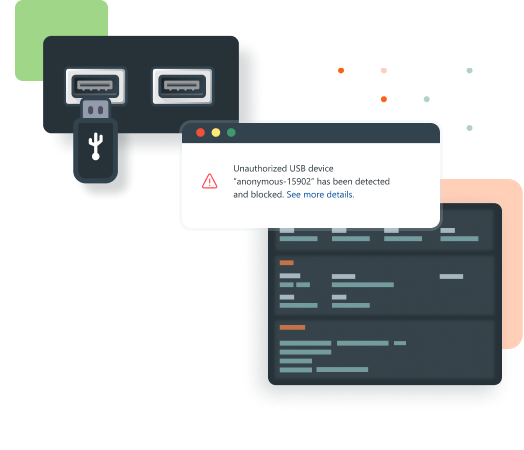
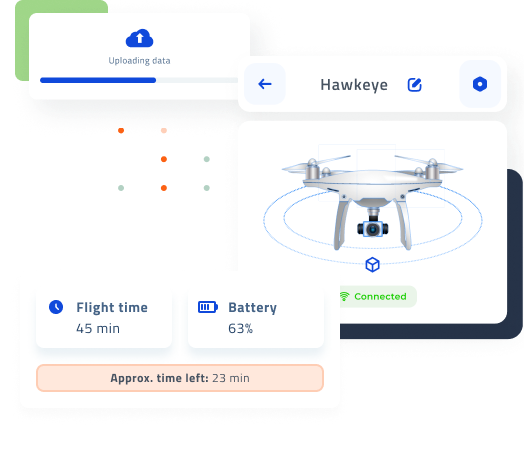

![Writing Windows Drivers in Rust: How Rust Is Changing Kernel-Level Development [+ Development Guide]](https://www.apriorit.com/wp-content/uploads/2026/02/v1-1-blog-article-Windows-Driver-Development-with-Rust-How-to-develop-a-Filesystem-Minifilter-driver-cover.jpg)




